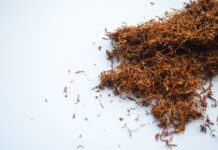It’s hard to see Iowa State University’s key role in a plan by one of its top officials to develop an 800,000-acre farm in Tanzania as anything other than institutional polish to a massive African land deal for politically-connected financial titans.
Connections
And, yet, there sits ISU, smack in the middle of a geopolitical web that stretches from its corn-and-soybean encircled campus in Ames to Wichita, Kan., home to Koch Industries, to Dubai, United Arab Emirates, one of two offices of Pharos Financial Group, and then back to Alden, Iowa, the base of AgriSol Energy LLC, a closely held ag enterprise that’s partnered with Pharos to use its “expertise to create agricultural businesses in underdeveloped global locations.”
The link between all is Bruce Rastetter, a one-time Iowa farmboy that now, according to the Associated Press, serves as Iowa’s political “kingmaker.”
Rastetter is CEO of Summit Group, an “umbrella organization” that includes Summit Farms, his Iowa farming operation, and AgriSol, the Pharos-partnered company on the prowl for “global locations that have attractive natural resources.” He was CEO of Hawkeye Energy Holdings, a 450 million gallon ethanol maker that, after a bankruptcy, was sold to a subsidiary of Koch Industries in 2011.
Education. He also serves as president pro tem of the Iowa’s Board of Regents, the governing body for three public universities in Iowa, including Iowa State. And, too, in 2007, Rastetter endowed the Bruce Rastetter Chair of Agricultural Entrepreneurship at ISU for a reported $2 million.
Rastetter was named regent (along with Craig Lang, Iowa Farm Bureau’s long-time president who now serves as regent president) in July 2011 by Gov. Terry Branstad. At the time, many at ISU saw the appointment as payback for Rastetter’s recruitment of the former five-term governor to, again, seek the office in 2010.
Political ties
Rastetter did little to dispel the notion. According to the AP, he “poured more than $160,000” into the Branstad campaign while his brother, Brent, contributed “an additional $31,000.”
(Branstad appointed Brent Rastetter to the Iowa Environmental Protection Commission in 2011. It was a controversial choice given Brent’s expertise: owner of “a company that constructs hog confinement facilities.”)
Tanzania
Rastetter’s African venture took wing last year when AgriSol announced its intention to bring “state-of-the-art farming practices, modern seeds and other inputs” to nearly 34,000 acres in Tanzania.
The goal, according to AgriSol’s website (links to it and other sources are posted at www.farmandfoodfile.com), was to “develop a new private/public/academic partnership model that combines large-scale, commercial farming with local outreach and outgrower programs for small landowners.”
The “academic” part of the formula included ISU.
United Kingdom
According to a Jan. 1, 2012 story in The Guardian, a national newspaper in the United Kingdom, the university’s ties to the land deal were deeper.
They included two trips to Tanzania in 2010 by ISU associate ag dean David Acker “to do preliminary research” on the land, and a memorandum between AgriSol and the Tanzanian government that noted “AgriSol would be ‘working closely with Iowa State University.’”
The deal. The Guardian story went on to explain that the deal, estimated now to involve about 803,000 acres, will pay less than $1-per-acre rent on its 99-year land leases.
Also, according to the Oakland Institute, a think tank that investigated the deal in 2011, the AgriSol development “will… displace over 160,000 Africans.”
Partners?
Why is one of the premier land grant universities partnering with a politically potent Iowa ag prince in a $100 million African land deal that resembles something moldy out of 18th century than something new for the 21st century?
Downplaying. Beats me, but ISU has spent the first week of January downplaying its links to Rastetter, AgriSol and Tanzania, claiming its participation now is mostly “advisory.”
Advisor or partner, ISU, through Gov. Branstad, still has a regent who views less than $1-per-acre rent for a 99-year lease on 800,000 acres of African farmland that will displace tens of thousands as a worthy enterprise to “create new markets and bring prosperity to Tanzania.”
What’s next for ISU’s ag school, Colonialism 101?













